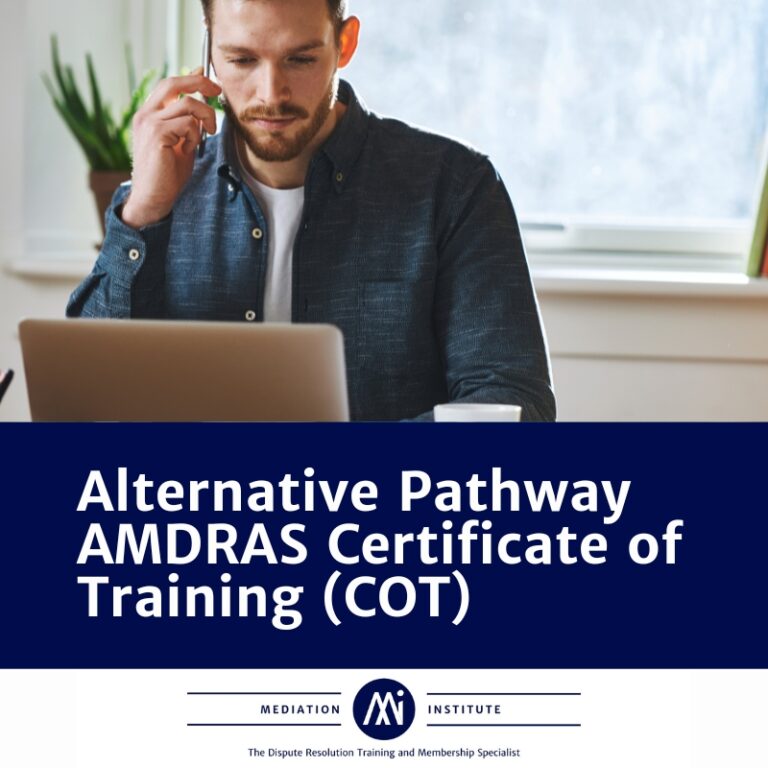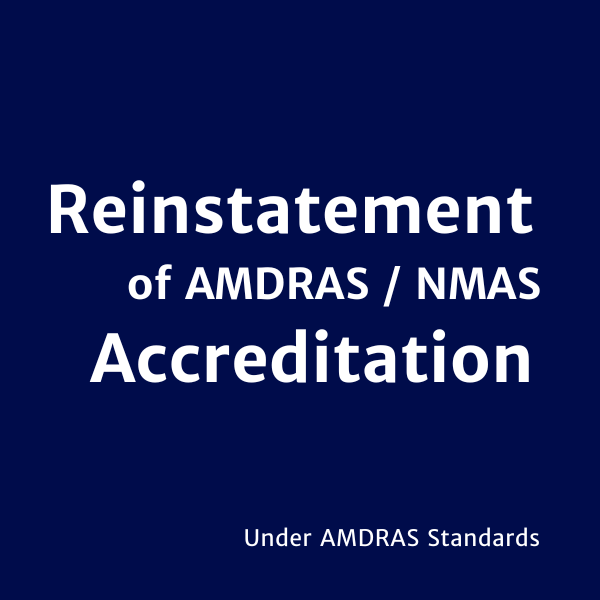Understanding Mediation Training
In Australia for AMDRAS Accredited Mediators and Family Dispute Resolution Practitioners
Introduction to Mediation Training
Mediation training is a structured, practical pathway for developing the skills needed to resolve conflict constructively. In workplaces, families, organisations, and communities, disputes are inevitable. Mediation provides a respectful alternative to escalation, litigation, and entrenched disagreement by supporting clear communication and workable outcomes.
Mediation training develops professional competencies and practical life skills, including active listening, empathy, and emotional awareness, thereby strengthening leadership, decision-making, and relationships in any setting.
The Purpose of Mediation Training
Mediation training prepares you to manage conflict calmly and effectively. You learn how to de-escalate tension, understand the emotional drivers behind disputes, and guide parties toward outcomes they can realistically commit to.
A core focus is listening to understand rather than respond. Mediators use empathy to create safe environments where parties can explore options and co-create solutions.
Types of Mediation Training
Mediation is not a single skillset. Different training pathways allow you to specialise based on the work you want to do.
General Mediation (AMDRAS)
General mediation training is delivered in accordance with the Australian Mediator and Dispute Resolution Accreditation Standards (AMDRAS). It covers conflict theory, the facilitative mediation process, and advanced interpersonal skills.
This training applies across the workplace, commercial, organisational, and community disputes. It is particularly valuable for HR professionals, managers, consultants, and those seeking professional mediator accreditation.
Find out more about AMDRAS Mediation Training
Family Dispute Resolution (FDR)
Family Dispute Resolution focuses on family law disputes, including parenting arrangements, property, and financial matters following separation.
Attendance at FDR is mandatory for children’s matters before court proceedings (unless an exemption applies) and strongly encouraged for property matters. It supports cooperative, child-focused, and lower-cost outcomes.
Find out more about FDR Practitioner Training
Transformative Relationship Mediation (TRM)
TRM builds on general mediation skills and focuses on improving communication within ongoing relationships. The emphasis is on repairing the interaction rather than reaching an agreement.
This approach suits families, couples, business partners, and other relationships that must continue beyond the dispute.
Find out more about Transformative Relationship Mediation
Conflict Management for One (CM-1)
CM-1 supports individuals before, during or after mediation, or when mediation is not possible. It is beneficial when one party is unwilling to mediate or has declined to participate.
Delivered by a neutral mediator, CM-1 helps individuals clarify perspectives and plan constructive next steps.
Find out more about Conflict Management for One Training
Community and Legal Mediation
Community and court-connected mediation programs resolve civil and neighbourhood disputes without litigation and often provide valuable practical experience.
Find out more about the Interact Support – Interact Community Dispute Resolution Service ICDRS
Key Skills You Will Develop
Clear, purposeful communication
Active listening and effective questioning
Neutrality and ethical objectivity
Problem-solving and reality testing
Managing power imbalance and emotional dynamics
Who Mediation Training Is For
Mediation training suits professionals across many fields, including:
HR and workplace leaders
Legal practitioners
Social workers and counsellors
Business professionals
Those seeking to practise professionally as mediators or FDR practitioners
Accreditation and Qualifications
AMDRAS Accreditation
The AMDRAS Board administers AMDRAS accreditation through Recognised Providers. Mediation Institute is both a Recognised Training Provider (RTP) and a Recognised Accreditation Provider (RAP). Accredited mediators may also join Mediation Institute as their professional body.
Family Dispute Resolution Practitioner Registration
The Australian Attorney-General’s Department administers FDR practitioner registration and requires a postgraduate qualification. Mediation Institute delivers CHC81115 – Graduate Diploma of Family Dispute Resolution in partnership with Inspiritive (RTO 21178).
Training Duration and Delivery
AMDRAS mediation training: typically completed in 6–8 weeks (self-paced with live skills training)
Graduate Diploma of FDR: usually 12 months part-time, with flexibility to accelerate or extend.
Training is delivered online, combining written and video content with live role-plays and feedback. This approach allows flexibility without compromising skill development.
Choosing the Right Program
Look for a provider that offers:
AMDRAS-recognised training
Strong practical skills focus
Clear accreditation pathways
Ongoing professional and ethical support
Ongoing Development
Accredited mediators are required to maintain professional development through advanced workshops, peer review, and supervised practice. Practicum workshops also provide a pathway to Advanced Mediator Accreditation under AMDRAS.
Benefits of Mediation Training
Strong, transferable professional skills
Increased confidence and emotional intelligence
Career flexibility across multiple sectors
Meaningful contribution to individuals and communities
Frequently Asked Questions
How long does it take to become a mediator?
Most participants complete the course in six weeks, with the flexibility to extend up to six months.
Is mediation training only for lawyers?
No. Mediation is widely used across HR, business, community services, and legal practice.
Can mediation training be completed online?
Yes. Mediation Institute offers recognised online programs with live skills training.
What is the average salary for a mediator?
Mediator earnings in Australia vary by experience, location, and employment context. Based on industry salary data, typical annual earnings range from $80,179 to $117,712 (Indeed, 2025). Many mediators work part-time or combine mediation with other professional roles.
Build Skills That Last
Mediation training gives you practical skills you can rely on in real situations, not just theory. It strengthens your communication, your ability to manage complexity, and your confidence in leading difficult conversations.
With recognised accreditation, flexible delivery, and a strong practical focus, this training supports your professional growth now and into the future. If you are ready to invest in skills that remain relevant, respected, and in demand, mediation training is a smart next step.

What is Mediation?
Explains the process of Mediation and why choose to train as a mediator.

AMDRAS Certificate of Training COT Alternative Pathway
AMDRAS COT Alternative Pathway | Mediation Institute AMDRAS • Certificate of Training • Alternative Pathway AMDRAS COT Alternative Pathway If

Requirements to Reinstate Lapsed Accreditation as a mediator
How to reinstate lapsed accreditation as a mediator. This post provides information about the current requirements for nationally accredited mediators in Australia to re-instate lapsed national accreditation under the NMAS and AMDRAS systems
